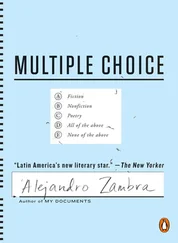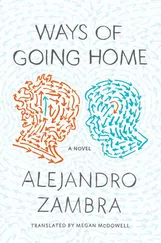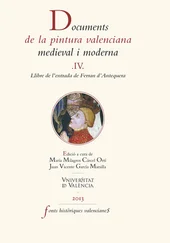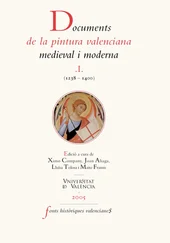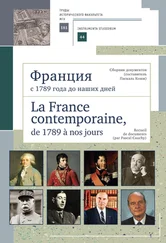8
The first time I served at Mass, I spent the first few minutes looking out of the corner of my eye with a fierce sense of vengeance toward the blond woman, who just sat there, refusing to notice my triumph. It was hard for me to concentrate on the rituals that I normally respected and believed in, but which, just then, up onstage, I barely seemed to remember. There were moments of glory, like when we rang the bells or seconded the priest in the sign of peace. But then the dreaded crossroads came: it was my turn to receive Communion. My plan had been to tell the priest before Mass that I couldn’t take Communion because I’d gone too long without confessing, but I’d forgotten, and now it was too late. I tried to make a gesture that communicated all of this, a gesture that would hopefully be imperceptible to the faithful behind me, but I couldn’t — the priest stuffed the host into my mouth, and it tasted the way it does to everyone: bland. But, at that moment, I didn’t care about the taste — I felt like I was going to die right there, struck down by a bolt of lightning or something. I walked home with Mauricio and I planned to confess my sin to him, but he was so happy, congratulating me over and over again on my performance at Mass, that I didn’t mention it.
When we got to Mauricio’s house, which was close to Mater Purissima, his older brother invited me to have lunch with them. There was no one else in the house. We ate charquicán and listened to Pablo Milanés, who I knew for his song “ Años, ” which I thought was funny, and also for “ El breve espacio en que no estás, ” which I liked. Using a double tape deck, they had recorded each song three times in a row on a ninety-minute tape, or maybe it was a hundred-and-twenty-minute tape (“They’re so good you want to listen to them again right away,” Mauricio explained to me).
The brothers sang along in horrible voices while they ate; they yelled the lyrics unabashedly, even with their mouths full, and I liked that. When someone sang out of tune in my grandmother’s presence, she would say quietly, as though she were telling a secret (but loud enough so that everyone could hear her), things like: “It’s clear that we aren’t at the opera” or “We don’t always wake up well tuned” or “Does this soprano have a mustache?” But my grandmother wasn’t there to keep those brothers from singing with utter abandon, with ease: you could tell they had sung those songs an infinite number of times, that the music meant something important to them.
While we spooned our ice cream, I started paying attention to the lyrics of “ Acto de Fe ”: “ Creo en ti… I believe in you / and my belief grows / with the pain and suffering / as I look around.” The end of the song struck me as disconcerting: I thought it was a love song, but it ended with the word revolution . The brothers sang it with all their hearts: “I believe in you / revolution.”
Although I was a boy who liked words, that was the first time, at eight years old — or maybe by then I’d turned nine — that I heard the word revolution . I asked Mauricio if it was a name, because I thought it might be the name of the beloved woman: Revolution González, for example, or Revolution Arratia. They laughed, looked at me indulgently. “It’s not a name,” Mauricio’s brother clarified. “ Revolution ? You really don’t know that word?” I told him no. “Well, then you’re a turd.”
I knew it was a joke; he only said it for the rhyme. Then Mauricio’s brother gave me a class on Chilean and Latin American history that I wish I could recall to the letter, but all I remember is the feeling of becoming bewilderingly and uncomfortably aware of my own ignorance. I knew nothing about the world, nothing. The brother left and Mauricio and I went to watch TV in his bedroom; we fell asleep or half asleep. We started to grope each other, to touch each other all over, without kissing. Throughout all our years of friendship, we never did that again, nor did we mention it.
9
I arrived home just after dark. I wasn’t in the habit of praying, but that night I did, for a long time — I needed God’s help. In just one day I had accumulated two tremendous sins, although I was more worried about my false Communion than my dalliance with Mauricio.
My grandmother saw me there, kneeling in front of a portrait of Christ that we had hanging in the living room, and she couldn’t hold back her laughter. I asked her what she was laughing at, and she told me not to exaggerate, that one “Our Father” was quite enough. My grandmother never went to Mass: she said the priests ogled too much, but she did believe in God. “I don’t need to say prayers,” she explained to me that night. “It’s enough to have a conversation with Jesus, freely, before I go to sleep.” I thought that was strange, or at least intimidating.
Although I went to a Catholic school, I didn’t associate any religious sentiment with what went on there. I didn’t like it when they made us go to Mass at school, or to those tedious sessions in the church that was contiguous to the main building, where they prepared us for our First Communion — those stupid lists of questions, as if we were memorizing traffic rules. But at recess the next morning, I felt so guilty that I decided that even though I hadn’t had my First Communion yet, I needed to confess, or at least talk to a priest about those sins of mine. I headed for Father Limonta’s office, where I found him absorbed in an account book, maybe balancing some figures. When he raised his head he gave me a severe look, and I froze stiff. “I already know what you’re here about,” he told me, and I started trembling, imagining the priest kept up some kind of express communication with God. I went blank, felt dizzy. “It’s not going to happen,” said Limonta finally. “All the boys come in here and ask the same thing, but you’re still too young for the band.” I ran out, relieved, and went back to class.
I think it was that same day that the head teacher and a priest whose name I don’t remember brought us to a home for mentally challenged children. The goal of the visit was to show us just how fortunate we were, and there was even a script to increase the drama: one by one the home’s children would approach the teacher in order to receive her encouragement and affection, though she didn’t touch or hug them. “You mean so much to us, Jonathan,” she would say, while a boy with a twisted mouth, skewed eyes, and snot hanging from his nose mumbled something incomprehensible in response. Each case was more heartrending than the last, and the final person to be paraded out was Lucy, a forty-year-old woman with a little girl’s body, who seemed paralyzed but would turn her head when the priest rang a bell. I remember I thought about Dante then, who was normal compared to these kids, even though in our neighborhood they called him the Mongoloid.
Up until then, my idea of suffering had been associated with Dante and the handicapped children on the telethon, which was an inexhaustible fount of fears and nightmares. Every year my sister and I, like nearly all children in Chile, would watch the entire program until we were falling-down tired, and then we would spend weeks imagining what it would be like to lose our arms or legs.
10
“This is nothing,” my grandmother said after the 1985 earthquake, hugging me. We went back to school some months later, and they switched us to an improvised classroom they’d constructed behind the gym, where we stayed for the rest of the year.
We had a new teacher, too. The first thing he told us was his name, Juan Luis Morales Rojas, and he repeated it in a quiet voice, in a neutral tone, two, three, twenty times. “Now you all repeat it,” he told us. “Juan Luis Morales Rojas.” We started to repeat the name, with growing confidence, increasing our volume, trying to understand if there was a limit to how loud we could be, and after a while we were shouting and jumping while he moved his hands like an orchestra director, or like a musician who was enjoying listening to the audience sing along to the chorus of one of his songs. “Now I know you’re never going to forget my name” was all he said when we got tired of shouting and laughing. In all my years at that school, I don’t remember a happier moment than that one.
Читать дальше

